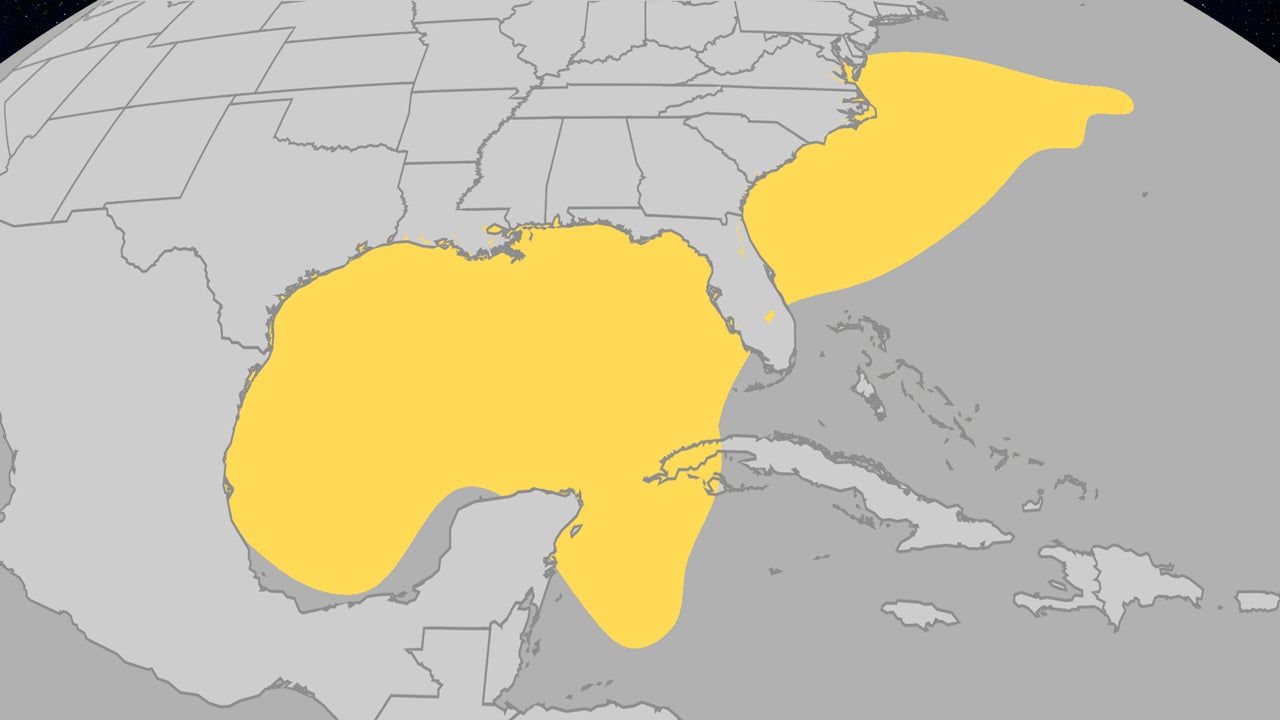June's Role In Atlantic Hurricane Season: Origins And Increased Activity

Welcome to your ultimate source for breaking news, trending updates, and in-depth stories from around the world. Whether it's politics, technology, entertainment, sports, or lifestyle, we bring you real-time updates that keep you informed and ahead of the curve.
Our team works tirelessly to ensure you never miss a moment. From the latest developments in global events to the most talked-about topics on social media, our news platform is designed to deliver accurate and timely information, all in one place.
Stay in the know and join thousands of readers who trust us for reliable, up-to-date content. Explore our expertly curated articles and dive deeper into the stories that matter to you. Visit Best Website now and be part of the conversation. Don't miss out on the headlines that shape our world!
Table of Contents
June's Role in Atlantic Hurricane Season: Origins and Increased Activity
June marks the official start of the Atlantic hurricane season, a period of heightened atmospheric activity that significantly impacts coastal communities across the Americas. While the peak months are typically August through October, June's role in setting the stage for the season's intensity and frequency is increasingly recognized by meteorologists. This article delves into the meteorological conditions that contribute to June hurricane formation and examines the recent trend of increased hurricane activity during this earlier period.
<h3>The Genesis of June Hurricanes: A Complex Interplay of Factors</h3>
The formation of hurricanes, also known as tropical cyclones, requires a specific confluence of factors. Warm ocean waters are crucial, providing the energy necessary for the development of thunderstorms. Water temperatures above 80°F (27°C) at least 50 meters deep are ideal. June often sees parts of the Atlantic Ocean reaching these temperatures, particularly in the Caribbean Sea and the Gulf of Mexico.
However, warm water alone isn't sufficient. The atmosphere also plays a vital role. Low wind shear – the change in wind speed and direction with altitude – is essential. High wind shear disrupts the organized structure of thunderstorms needed for hurricane development. In June, the atmospheric conditions can be more favorable for lower wind shear in certain areas, making hurricane formation possible.
Furthermore, a pre-existing weather disturbance, such as a tropical wave moving off the coast of Africa, provides the necessary seed for hurricane development. These waves are common throughout the year, and their interaction with warm ocean waters and low wind shear can trigger the formation of tropical depressions, which can further strengthen into tropical storms and eventually hurricanes.
<h3>Increased June Hurricane Activity: A Concerning Trend?</h3>
While June hurricanes have always been a possibility, recent years have shown a noticeable increase in their frequency and intensity. This trend raises concerns amongst scientists and coastal communities alike. Several factors might contribute to this increase:
-
Climate Change: The warming of ocean waters due to climate change is a significant factor. Higher ocean temperatures provide more fuel for hurricane development, potentially extending the season and increasing the likelihood of earlier storms. [Link to a reputable source on climate change and hurricanes].
-
Improved Forecasting Technology: Advances in weather forecasting and satellite technology allow for earlier and more accurate detection of tropical disturbances, leading to a greater awareness of June storms. This doesn't necessarily mean more June hurricanes, but rather, a better understanding of their occurrence.
-
Natural Variability: It's crucial to remember that hurricane activity fluctuates naturally. Periods of higher and lower activity are part of the long-term climate cycle. Determining the exact influence of climate change versus natural variability remains an active area of research.
<h3>Preparing for an Earlier Season: Mitigation and Preparedness</h3>
The increased likelihood of June hurricanes necessitates a shift in hurricane preparedness strategies. Coastal communities should not wait until August to begin preparations. Instead, a year-round awareness and proactive approach is essential.
-
Develop a Hurricane Plan: This includes creating an evacuation plan, assembling an emergency kit, and understanding local warning systems.
-
Monitor Weather Forecasts: Stay informed about weather updates throughout the hurricane season, starting in June. [Link to a reputable weather forecasting website].
-
Strengthen Coastal Infrastructure: Investments in infrastructure that can withstand hurricane-force winds and storm surge are crucial for minimizing damage and protecting lives.
In conclusion, while June might not be the peak of hurricane season, its role is becoming increasingly important. The combination of warming ocean temperatures, improved forecasting, and naturally fluctuating weather patterns contributes to a growing concern about earlier and potentially more intense hurricane activity. Understanding this trend and proactively preparing for its impact are critical for protecting lives and property along the Atlantic coast.

Thank you for visiting our website, your trusted source for the latest updates and in-depth coverage on June's Role In Atlantic Hurricane Season: Origins And Increased Activity. We're committed to keeping you informed with timely and accurate information to meet your curiosity and needs.
If you have any questions, suggestions, or feedback, we'd love to hear from you. Your insights are valuable to us and help us improve to serve you better. Feel free to reach out through our contact page.
Don't forget to bookmark our website and check back regularly for the latest headlines and trending topics. See you next time, and thank you for being part of our growing community!
Featured Posts
-
 Super Micro Stock Is Investor Skepticism Justified
May 27, 2025
Super Micro Stock Is Investor Skepticism Justified
May 27, 2025 -
 Travis Hunters Post College Commitment Marrying Fiancee Leanna De La Fuente
May 27, 2025
Travis Hunters Post College Commitment Marrying Fiancee Leanna De La Fuente
May 27, 2025 -
 French Open The Cavaliers Comeback At Roland Garros
May 27, 2025
French Open The Cavaliers Comeback At Roland Garros
May 27, 2025 -
 Roland Garros 2024 Full Tournament Schedule And Match Dates
May 27, 2025
Roland Garros 2024 Full Tournament Schedule And Match Dates
May 27, 2025 -
 From Oval Doubts To Indy 500 Glory Alex Palous Journey
May 27, 2025
From Oval Doubts To Indy 500 Glory Alex Palous Journey
May 27, 2025
